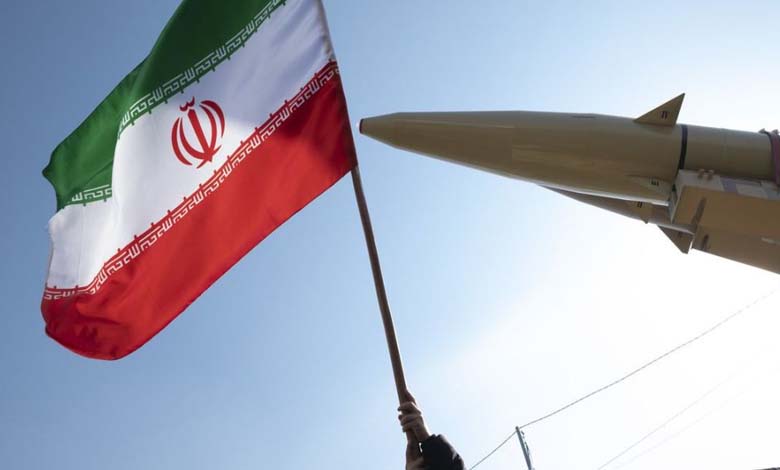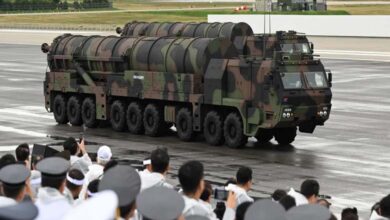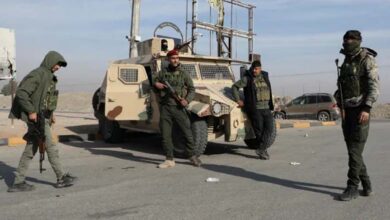How did Iranian missiles breach Israel’s “Dome”? 4 Reasons

“Threads of light falling to the ground” was a scene followed by the world through television screens during the Iranian strike on Israel, raising questions about the breach of defenses.
-
Can Hezbollah stand up to Israel? Iranian President expresses doubts
-
Iran’s Secret Document Ignites a Dispute within the Israeli Military and Netanyahu’s Office
Iran launched about 180 ballistic missiles in a massive airstrike on Israel on Tuesday, but Israeli air defenses intercepted most of them.
However, some managed to penetrate multiple layers of surface-to-air missile systems set up to defend the Jewish state, hitting targets on the ground without causing injuries.
Footage circulated on social media shows light trails striking the ground and the subsequent damage from the strikes.
-
Will Iran Abandon Its Revenge Against Israel in Exchange for a Gaza Ceasefire?
-
Leaks from the Secret Meeting: Iran Refuses to Support Hezbollah and its Iraqi Militias Against Israel
This raised questions about whether Iran had succeeded in breaching one of the world’s most powerful air defense systems.
While analysts warned that it is too early to know, there are some indicators to consider when assessing the performance of the Israeli air defense system that may explain why some Iranian missiles penetrated it, according to the British newspaper “Daily Telegraph.”
Timing
When Iran launched its last attack on Israel in April, the strike was known a week in advance, giving Israel and its allies the ability to prepare to counter it.
-
Intense Cyber War Between Israel and Iran
-
Washington Tests Military Capabilities Amid Escalation Between Israel and Iran
Thus, Israel and its American, British, and European allies were given enough time to prepare by deploying fighter jets and warships to help intercept the barrage of Iranian drones and missiles.
In this context, Samuel Hickey from the Center for Arms Control and Non-Proliferation stated, “This was relatively more surprising,” as the world knew nothing about the Iranian strike until just a few hours before it occurred, and there was no similar preparation for the first strike.
-
Israel Caught Between Rafah and Iran.. Will it Break the Pressure Barrier?
-
Sanctions on Iran and Aid to Israel… “American Representatives Swim Against the Biden Current”
More Advanced Weapons
In its first large-scale attack on Israel, Iran used a mix of about 300 missiles and drones.
Although the total number is greater than the 180 missiles launched late Tuesday, the first strike consisted mostly of cruise missiles and drones.
Hickey said, “Iran used slow cruise missiles and drones – suicide drones – in the first strike that could be shot down by fighters in the sky.”
-
Israeli Army and Mossad Agree on Plans to Strike Iran
-
Israeli Movements to Confront Iranian Threat: Reservist Call-up and Communication Jamming
However, in the second strike, the missiles were more advanced, making the interception of ballistic missiles traveling at supersonic speeds, that is, over 5 Mach, much harder for fighters or ground systems.
Hickey noted, “It is unlikely that fighter jets would be a significant factor” in countering such an attack.
Preservation of Munitions
A third factor mentioned in the “Daily Telegraph” analysis regarding the passage of several Iranian missiles through Israeli interception systems is the preservation of munitions, as air defense is very costly financially.
-
Iran explores details of anticipated exchange deal between Hamas and Israel
-
Iran warns Israel and the United States of “escalation beyond control”
Estimates suggest that Israel’s attack in April cost Israel and its allies about £1.1 billion ($1.5 billion) to fend off the barrage of missiles and drones.
There is also the issue that the number of intercepting missiles is currently limited, as Western efforts to assist Ukraine in defending its cities against Russian bombardment have consumed significant resources in this area.
Given that both Israel and Ukraine rely heavily on the United States for these intercepting missiles, decisions must be made regarding munitions preservation.
-
Iran comments on Israel’s new government and Netanyahu’s departure
-
Naim Qassem dismissed the prospect of an escalation of violence between the Iran-backed party and Israel
Hickey explains, “We still don’t know how many missiles Israel decided to engage with; any number of missiles expected to fall in areas that won’t cause much damage to human lives or infrastructure… they will choose to let it pass.”
Such decisions may help Israel preserve its intercepting munitions to defend against further attacks on its territory.
Saturation
Again, due to real concerns regarding the scarcity of air defense intercepting missiles, there are fears that Iran may attempt to overwhelm Israel in any future large-scale bombardment.
-
Iran attempts to move thousands of militants to border areas between Syria and Lebanon… Why?
-
Israel Attacks Central Beirut for the First Time
However, Hickey stated, “It seems Iran launched fewer, but more advanced missiles last night; however, if this develops into a conflict, Israel will likely be aware of it.”
He continued, “Yesterday’s strike could be a reason not to escalate into a full-scale conflict,” referring to the fact that it did not cause damage warranting a strong response from Israel, while Iran appears to be saturated with it.












